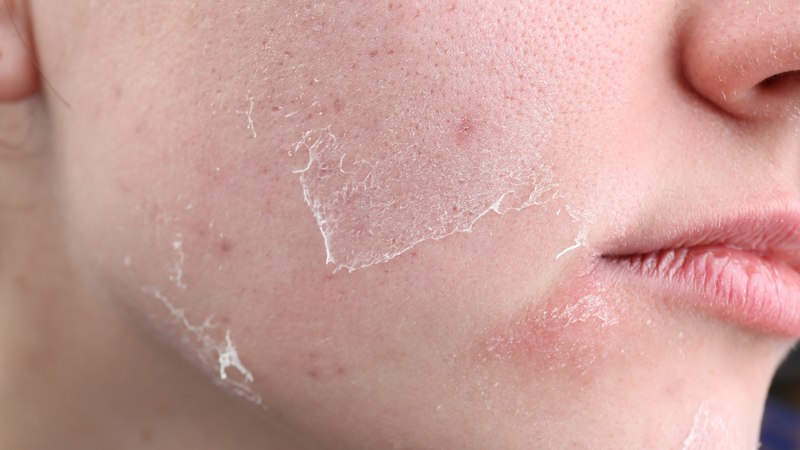Vitamin A deficiency is common in children, leading to stunted growth, susceptibility to diseases such as dry eyes, infections and increased risk of death. According to global data, every year about 40 million children suffer from mild to moderate vitamin A deficiency, of which about 500,000 children are blind. Vitamin A deficiency in Vietnam is also at a worrying level. So what happens to the body when it does not receive enough vitamin A?
Vitamin A plays an important role in maintaining health and body function. However, many people are not aware of the necessity of this vitamin, especially when deficiency can cause serious effects. Vitamin A deficiency not only affects vision but also affects growth, skin beauty and other physiological functions. So what happens to the body when it does not receive enough vitamin A? Let’s explore the negative effects that vitamin A deficiency can have on health in the article below.
Health effects when the body does not receive enough vitamin A
Here are the things that will happen to the body when it does not receive enough vitamin A:
Dry skin
Vitamin A plays an important role in maintaining moisture and resistance for the skin, helping to protect the skin from harmful bacteria. Vitamin A also helps remove dead cells and prevent skin infections. When there is a vitamin A deficiency, the skin is prone to dryness, irritation and is at high risk of diseases such as eczema. If you experience unusual signs on your skin, you should consult a doctor for timely advice.

When there is a lack of vitamin A, the skin is prone to dryness, irritation and is at high risk of diseases such as eczema
Eye problems
Vitamin A is important for eye health. When deficient, symptoms may include night blindness, conjunctival xerosis, Bitot’s spots, and corneal xerosis. Long-term vitamin A deficiency can cause corneal ulcers, corneal scarring, or fundus xerosis, leading to severe vision loss.
Reduced growth
Vitamin A is an important factor supporting the comprehensive development of children, including the immune system, nervous system, skeletal system, and endocrine system. Vitamin A deficiency can lead to the following problems:
- Slow growth in height and weight.
- Vulnerable to infections such as pneumonia, diarrhea, measles, and ear, nose, and throat diseases.
- High risk of malnutrition and anemia.
- Prone to learning, cognitive, and psychological disorders.
It can be seen that when deficient in vitamin A, children may experience delays in physical development, including weight gain and height.

Vitamin A deficiency can cause delays in physical development in children.
Frequent Infections
Vitamin A plays an important role in strengthening and maintaining the body’s immune system. As a powerful antioxidant, vitamin A helps protect the body from harmful free radicals and supports the immune system to function effectively. In addition, the mucous membranes in the body, such as those in the nose, throat and digestive tract, act as a defense layer, preventing bacteria, viruses and fungi from entering. When vitamin A is deficient, the protective function of the mucous membranes is impaired, making the body more susceptible to infection.
Frequent Fatigue
Vitamin A plays an important role in maintaining the body’s energy levels. When vitamin A is deficient, the body may feel tired, exhausted and have difficulty performing daily activities.
Sudden Weight Loss
A lack of vitamin A can lead to rapid and uncontrolled weight loss. If you experience sudden weight loss without a clear reason, it is necessary to see a doctor to determine the cause.

Vitamin A deficiency can lead to rapid and uncontrolled weight loss.
How to Supplement Vitamin A Safely and Effectively
Vitamin A is a fat-soluble vitamin that is stored in tissues throughout the body. However, the body cannot produce vitamin A on its own, so you need to supplement it from external sources such as food or supplements. Most people do not need vitamin A supplements because their diet provides enough. If your doctor recommends supplementation, it is important to follow the correct dosage, especially when combined with diet. The amount of vitamin A needed varies by age and gender.
There are two main forms of vitamin A found in foods and supplements: Retinol (animal vitamin A) and carotenoids (provitamin A). Retinol, found in animal products such as whole milk, cheese, and some fish, is often called retinyl acetate or retinyl palmitate when added to foods. Meanwhile, carotenoids, including beta-carotene, are found in brightly colored fruits and vegetables such as carrots. Both forms of vitamin A are converted to retinoic acid in the body, which is the active form that the body uses for everyday physiological functions.
People who are deficient in vitamin A can supplement it through pills, multivitamins, or eye supplements. Creams and prescription medications such as tretinoin (used to treat acne, psoriasis, and wrinkles) also contain vitamin A. Retinol, a milder form of tretinoin, is found in many over-the-counter skin care products.

You need to supplement vitamin A from external sources such as food.
Signs and Symptoms of Vitamin A Overdose
Although vitamin A is important for many functions in the body, overdose can be dangerous. Acute vitamin A toxicity can occur within days to weeks of taking one or more high doses. Chronic toxicity is more common, usually occurring in people who take high doses of vitamin A over a long period of time. Chronic toxicity is more likely to occur when the daily dose of vitamin A exceeds 10 times the RDA.
Signs of vitamin A toxicity may include:
- Skin irritation (flaking, redness), dry skin, hair loss;
- Blurred vision;
- Weak bones;
- Headache, dizziness;
- Nausea, vomiting;
- Increased cholesterol levels.
In rare cases, vitamin A toxicity can cause liver or kidney damage or severe muscle or joint pain. If you experience any of these symptoms, seek medical attention immediately. Before taking any vitamin A supplements, you should consult your doctor to ensure your total daily dose of vitamin A is within safe limits.

Vitamin A toxicity can cause liver damage
Hopefully, this article has helped you understand what happens to your body when you don’t get enough vitamin A. Vitamin A deficiency can cause serious health problems, from vision problems to impaired immune system and development. Maintaining a healthy and balanced diet is the best way to protect your health and prevent these negative effects.





